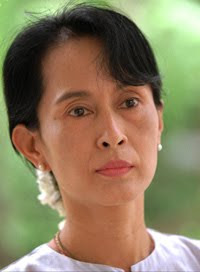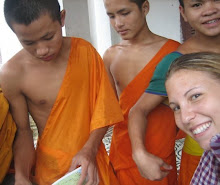But less than two weeks after Corazon Aquino's death, and in light of current struggles faced by the people of Iran, I just wanted to mention the power of the people as it is to me a symbol of some of the greatest acts of courage and beauty in the sad modern history of oppressive governments.
Having spent quite some time in South Africa, amandla (a Xhosa and Zulu word for "power") is to me first and foremost linked to the fight against Apartheid...and the many heroes, known and unknown who sacrificed their lives for justice. Best known of all, of course, is Nelson Mandela - who, faced with the option to stick to his life of a privileged black man and the chance to raise his family, or to risk a lifetime sentence rotting in jail, away from his loved ones, chose the latter, a decision that changed the course of history of an entire people. He made the conscious choice that his personal life/happiness weighed little on the scale compared to the eternal freedom (insh'allah!) of an entire people - oppressed for 300 years before that.
 That same choice was made by Aung San Suu Kyi - the leader of the pro-democracy movement of Burma- who has been in some form of imprisonment for 14 of the past 20 years (her house arrest was just extended for another 18 months by the military junta). When in 1999 her British husband was in the final stages of cancer, she declined the offer by the junta to leave the country to be by his side, fearing she would not be allowed back in. She has not seen her two sons since 2000.
That same choice was made by Aung San Suu Kyi - the leader of the pro-democracy movement of Burma- who has been in some form of imprisonment for 14 of the past 20 years (her house arrest was just extended for another 18 months by the military junta). When in 1999 her British husband was in the final stages of cancer, she declined the offer by the junta to leave the country to be by his side, fearing she would not be allowed back in. She has not seen her two sons since 2000.How many more of these silent heroes are there around the world whose names we do not know? These prisoners of conscience- as Amnesty International calls them- who rot in jail, hard labor camps, perhaps torture chambers, so that their sacrifice may serve the purpose of a greater cause?
Some like Gandhi have been lucky to live to see their accomplishment (though Gandhi was assassinated shortly after). Gandhi's Quit India massive non-violent civil disobedience movement against British occupation led hundreds of thousands of people to the streets. It motivated a population of millions like never before to claims of independence. That independence was finally granted in 1947.
Though I already knew of Gandhi and Mandela, the People Power Revolution really became concrete to me after seeing a documentary in a Peace and Conflict class by the dear late Professor Andrus at USC, on the Philippines' 1986 non-violent revolution. Following 20 years of authoritarian ruling of Ferdinand Marcos, 2 million Filipino civilians took to the streets over a period of 3 days. Marcos eventually fled the country and Corazon Aquinos was elected on February 25 1986, becoming the "Mother of Democracy" and the first female president of any country in Asia.
Other peaceful revolutions have followed, like the 1989 Velvet Revolution in Czechoslovakia that saw the overthrow of the Communist government and Vaclav Havel become president.
Yet not all have managed to stay non-violent or even to accomplish its goals. The Buddhist monks of Burma have had no such luck in their attempt for change last year. The Nepalese 2006 democracy movement effectively removed the king and
 installed a new government but many came to the streets putting their life in danger.
installed a new government but many came to the streets putting their life in danger.And so have the Iranians in the past 2 months. Following alleged fraud elections, they have taken the streets by tens of thousands - the biggest unrest since the 1979 revolution. But the government's violent response has forced them back into their homes.
Who could blame them?
Perhaps those who have taken the bullets fighting for the dreams of a fairer society. Those who have spent their lifetime in jails prevented from living the life that was meant.
But is it fair to ask a nation's people to take on this burden, to possibly sacrifice their youth/their life for those who will come after? It is a high price to pay. One that offers the chance to be remembered in History, or forever forgotten- denied recognition by the victors. Is it a cause worth the risk?
Not this time. But in remembering the heroes of the past, we keep the hope alive.
The power is to the people. Amandla.

No comments:
Post a Comment